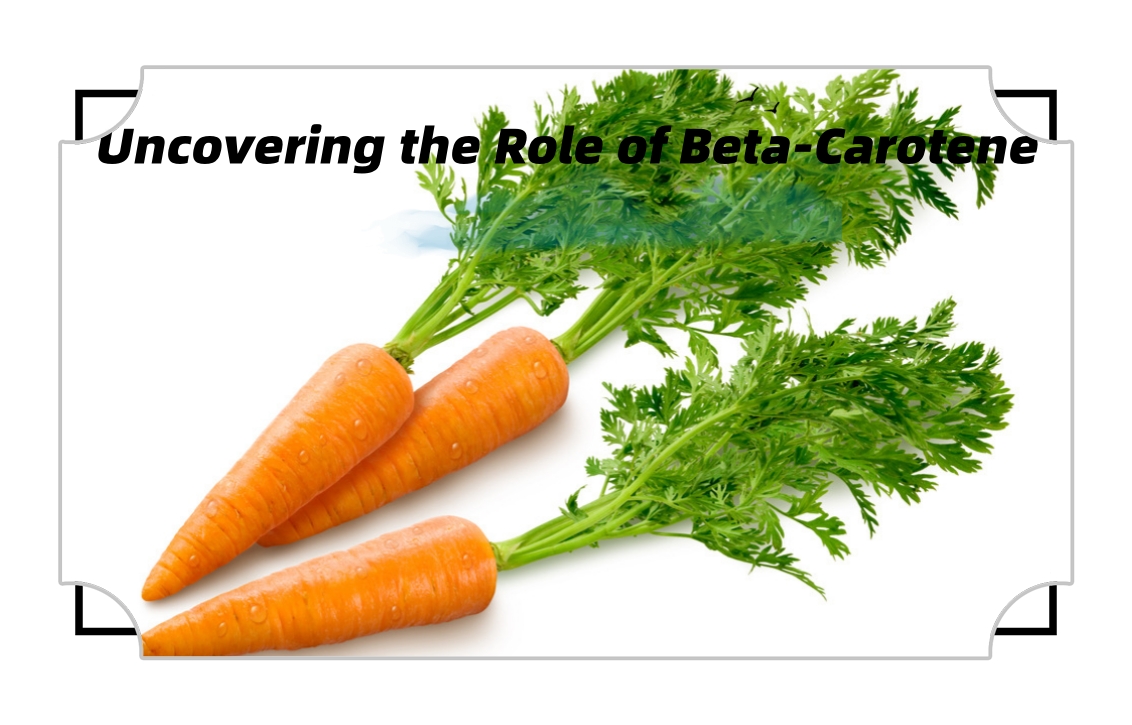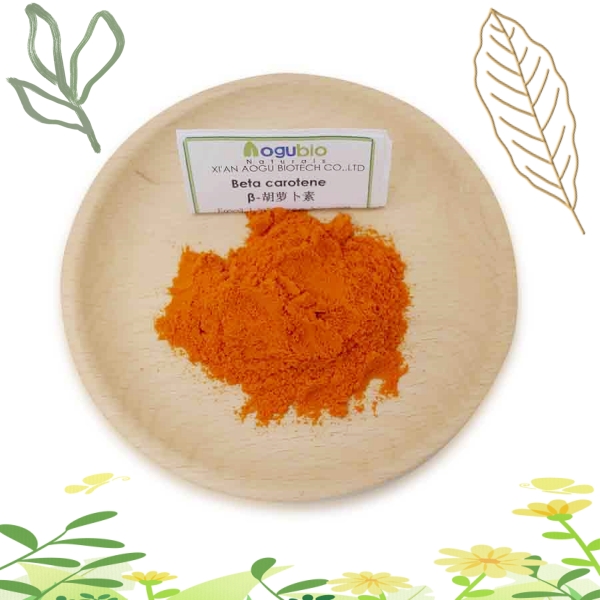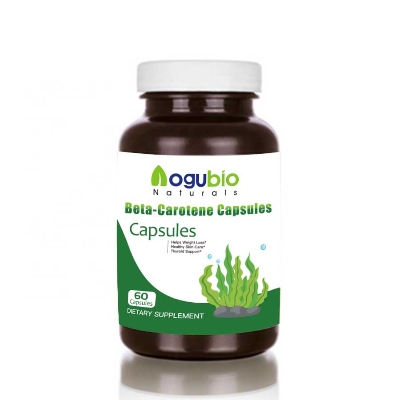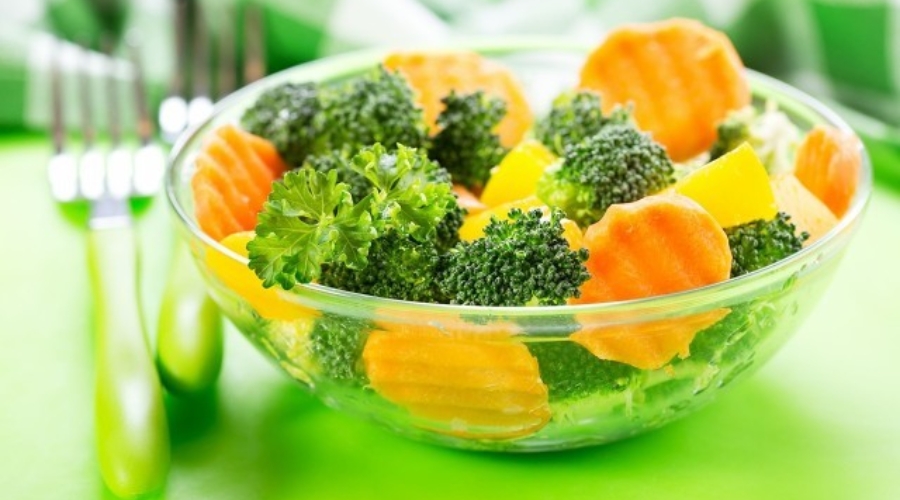
Food coloring plays an important role in enhancing the overall visual appeal of a meal. From vibrant reds to cheerful yellows, color can make our food taste better. A popular food coloring agent is beta-carotene, which not only provides a natural hue to various foods, but also has several health benefits. Food coloring has always been an important part of our culinary experience, adding vibrant colors to a variety of dishes and beverages. While artificial food colors have their place in the industry, there is growing interest in natural alternatives that offer both color and health benefits. One such natural option is beta-carotene, a powerful antioxidant that not only gives our food its color, but also provides several health benefits.
Beta carotene is a type of carotenoid, a pigment found in plants that gives them their intense color. It is orange-yellow and is found in yellow, orange, and red foods. In the body, beta-carotene is transformed into vitamin A, which is needed by the body to support healthy vision, immunity, cell division, and other functions. Carotenoids are a group of yellow, orange, or red pigments. They can be found in fruits, vegetables, fungi, and flowers, among other living things. Beta carotene is a type of carotenoid found in vegetables such as carrots, pumpkins, sweet potatoes, spinach, and kale.
This article will cover the current research and understanding of how beta carotene affects the body and which foods are good sources of this antioxidant.
The benefits of carotene

One of the best-known benefits of beta-carotene is its role as a powerful antioxidant. Antioxidants are substances that help protect our bodies from harmful free radicals and oxidative stress. Free radicals are unstable molecules that damage cells and contribute to aging and diseases such as cancer. By neutralizing these free radicals, beta-carotene helps reduce the risk of chronic disease and supports overall health.
A major benefit of beta-carotene is that it strengthens our immune system. Research has shown that the compound boosts the activity of certain immune cells, making them more effective at fighting infection and disease. By strengthening our immune system, beta-carotene helps us stay healthy and prevent disease.
Additionally, beta-carotene has been linked to maintaining healthy skin. Our skin is constantly exposed to harmful environmental factors such as pollution and ultraviolet (UV) radiation. These factors can lead to premature aging, wrinkles and skin damage. Beta-carotene, along with other carotenoids, acts as a natural sunscreen by absorbing UV radiation and protecting our skin from its harmful effects. It also helps reduce inflammation and promote skin cell renewal for a healthier, more radiant complexion.
In addition to its protective effects on the skin, beta-carotene may reduce the risk of certain types of cancer. Research has found a potential link between higher beta-carotene intake and a lower risk of lung, breast and prostate cancer. The antioxidant properties of beta-carotene are believed to play a role in preventing the development and progression of cancer cells. However, further studies are needed to fully understand the mechanisms behind this association.
Beta-carotene also plays a vital role in maintaining good eye health. It is converted in our body to vitamin A, which is essential for normal vision. Vitamin A deficiency can lead to night blindness and dry eyes. By ensuring we get enough beta-carotene, we can support our vision and reduce our risk of age-related eye diseases, such as macular degeneration and cataracts.
Additionally, beta-carotene has been shown to have a positive effect on cognitive function. It is thought that the antioxidant properties of beta-carotene help reduce inflammation in the brain and prevent age-related cognitive decline. Studies have found that people whose diets are higher in beta-carotene perform better on cognitive tests and have a lower risk of diseases such as Alzheimer's disease.

Adding beta-carotene to your diet is relatively easy because it's abundant in a variety of foods. Some excellent sources of beta-carotene include carrots, sweet potatoes, spinach, kale, apricots and mangoes. These foods not only provide us with many other essential nutrients, but also allow our bodies to absorb beta-carotene more efficiently due to their natural fat content. Pairing beta-carotene-rich foods with a small amount of healthy fat, such as avocado or olive oil, can enhance its absorption.
While beta-carotene is generally safe to consume, excessive intake from supplements must be avoided. High-dose beta-carotene supplements have been linked to an increased risk of lung cancer, especially in people who smoke or have a history of smoking. Therefore, it is best to get beta-carotene through a balanced diet rather than relying on supplements.
In conclusion, the benefits of beta-carotene are vast and widespread. From its antioxidant properties to its role in maintaining healthy skin and promoting proper immune function, this compound offers significant benefits to our overall health. Introducing beta-carotene-rich foods to our diets is a simple and effective way to harness these benefits and support our health. So why not start including more beta-carotene in your daily meals and experience for yourself the positive effects it can have on your body and mind?
Incorporate beta-carotene into your diet

Adding beta-carotene-rich foods to your diet is an easy and enjoyable way to reap the benefits of this valuable compound. Here are some ideas to help increase your beta-carotene intake:
- Colorful Salad: Create a vibrant salad by tossing in various vegetables like carrots, bell peppers, and tomatoes. You can also add leafy greens like spinach or kale for an extra dose of beta-carotene.
- Wholesome soups: Soups are an excellent opportunity to add ingredients rich in beta-carotene. Consider making carrot or sweet potato soup to not only satisfy your taste buds but also boost your nutritional intake.
- Delicious Smoothie: Blend fruits like mango, apricot, and papaya with some Greek yogurt and a handful of spinach for a delicious, healthy smoothie rich in beta-carotene.
- Roasted Vegetable Blend: Roasted vegetables caramelize their natural sugars, enhancing their flavor. Try a baked mix of carrots, sweet potatoes, and cherry tomatoes for a colorful and nutritious side dish.
- Hearty stews: Prepare a hearty stew with a base of tomatoes, onions, and other beta-carotene-rich vegetables, then add your protein of choice for a hearty meal.
Food coloring is not only visually appealing, but also engaging. It can also provide significant health benefits. Beta-carotene is a commonly used food coloring agent that not only adds vibrant color to our meals, but also has antioxidant, anti-inflammatory and immune-boosting properties. Including beta-carotene-rich foods such as carrots, sweet potatoes and green leafy vegetables in our diet can help improve eye health, improve skin condition and reduce the risk of chronic diseases. So let's embrace the vibrant world of food coloring to make our meals not only visually appealing but also highly beneficial to our health.
Contact information
- Whatsapp: +86 18066950323
- Email: sales07@aogubio.com
Post time: Sep-13-2023




